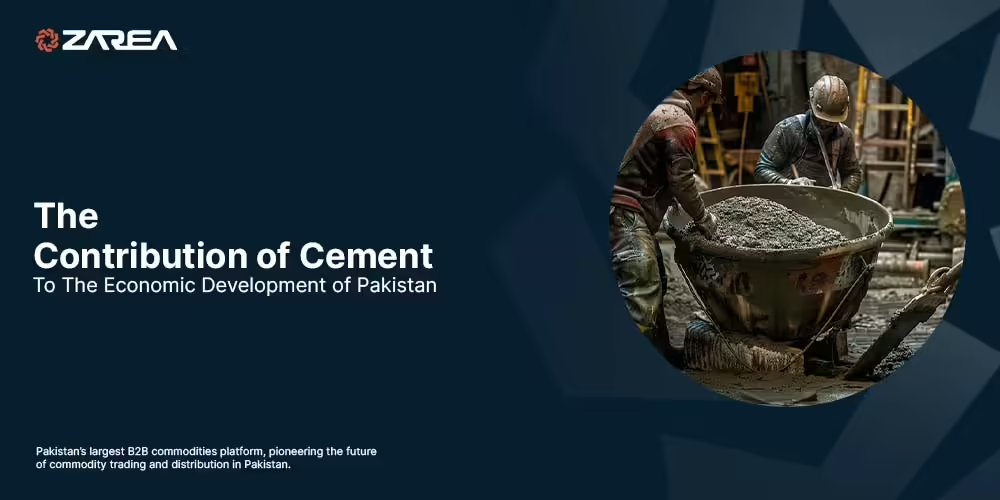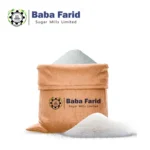The contribution of the cement industry to economic development can be assessed by the value added by the cement industry to the Gross Domestic Product of the country, the creation of employment opportunities, export receipts, tax payments, and the total revenue earned by the cement sector.
Pakistan’s cement industry is one of the country’s most important industries, exerting a substantial influence on the country’s economic growth. Therefore, the cement industry’s contribution to Pakistan’s economic growth is significant for the industrial and economic sectors.
Initially, Pakistan’s cement industry was extremely modest, but it grew swiftly and joined the export market. As a result, the cement sector adds to the Gross Domestic Product (GDP), employs thousands of individuals, and generates substantial tax money for the government.
It contributes to the economic growth of Pakistan both directly and indirectly. Additionally, it contributes to developing its allies’ industries, particularly the transportation sector, which is a significant beneficiary. The cement industry in Pakistan attracted both domestic and international investors.
The history of Pakistan’s cement industry dates back to 1947 when Pakistan had only four cement mills after achieving independence. Pakistan’s cement industry had an annual output capacity of less than 500,000 metric tons.
With time, cement manufacturing in the country underwent numerous changes, but it was still insufficient. As a result, there was a disparity between cement demand and cement supply. Cement was imported from other countries to satisfy the nation’s cement needs.
The cement industry entered a new phase with the privatization and effective price decontrol system in 1991-1992. After meeting local demand in 1997, Pakistan’s cement industry reached a level of surplus production. This enormous business growth drew numerous investors. Affordability and plenty of raw materials in the country were further factors that attracted investors. In addition, increasing local demand for cement consumption prompted manufacturers to increase their production capacity.
Since the local demand for cement has been stagnant for several years, the cement industry is now utilizing roughly 74% of its installed production capacity of approximately 45 million metric tons. In 2013, 33 million metric tons of cement were produced.
In 2013, cement sales in the United States remained at 25 million tons. The cement industry could not utilize its installed capacity due to poor domestic demand. This condition is mostly attributable to the reduction of PSDP (Public sector development project) money, as the PSDP monies released in the government’s yearly budget are the primary demand driver for Pakistan’s cement industry. However, these funds have been underutilized since a couple of years ago. Therefore, for the cement industry to utilize its maximum production potential, it must identify additional foreign markets.
Pakistan exports below-cost cement to Afghanistan and other Central Asian states. Because Afghanistan and Central Asian countries are landlocked and Pakistan is the only country that can export cement to these countries at competitive prices, the sector is extremely optimistic that exports will expand. During the year 2013, Pakistan exported 8 million tons of cement.
Role of the cement industry in Pakistan
Following is an overview of the role that the cement industry plays in Pakistan:
Employment opportunities
Pakistan’s cement sector is important to the nation’s economic growth. It represents 3% of the country’s total workforce. Pakistan’s cement industry consists of both expert and unskilled workers.
Laborers, technicians, engineers, and other professionals are provided in this industry. The bulk of cement companies in Pakistan is located in remote northern regions because the business needs a decent working environment. Thus, these regions are typically uninhabited. The Pakistani cement industry provides all basic amenities, such as housing, health care, and education, for its employees.
Pakistan’s cement industry contributes directly and indirectly to the employment of individuals. In addition, this business also benefits the cement industry’s ancillary sectors, such as transportation and retail.
Revenue tax
Pakistan’s cement industry generates 30 billion rupees in substantial revenue. The investment in the sector over the past four years has been substantial. For the development of this industry, almost 4 billion rupees are invested.
Pakistan’s cement sector is on a growth path. Pakistan’s cement industry’s tax revenues will therefore increase significantly. In addition, foreign corporations’ investments in Pakistan’s cement industry will result in the country’s substantial revenue generation.
Exports share
It accounts for a negligible portion of the nation’s total exports. The country’s northern region contributes more than 70% of the cement. In comparison, the southern region contributes the remaining 30%.
The Pakistani cement industry has a surplus production capacity of around 12 million tons of cement; if this capacity is exploited, the surplus cement may be exported to earn approximately $750 million in foreign money.
On the international market, Pakistani grey cement enjoys an excellent reputation. As a result, international purchasers deemed this cement to be of the highest quality. For this reason, the demand for our cement in overseas markets is consistently growing.
Best Construction Blog
To learn more about the construction industry, visit Zarea blog – the best construction blog in Pakistan. Zarea ensures that it provides high-end construction materials with unmatched quality. Our online platform’s construction materials have the best base materials prepared from the most precise methods. The companies we have onboard asserted a high manufacturing capacity. We ensure that each enlisted company has a standard compliance certificate that verifies their construction materials’ quality, quantity, and specifications. This is why you will find the construction materials at Zarea are from top-notch brands.
Now you can shop online all the high-quality construction materials in one go. Our rate list will give you insightful information that will cut the tricky market price comparison process short.
For the first time in Pakistan, Zarea is offering digital payment solutions for the online buying of construction materials. You can not only browse numerous options for construction materials at Zarea but can also get all the materials delivered to your doorstep. With the technical expertise of Zarea , procurement of construction materials is no longer a complicated process. You can also compare daily construction material prices in Pakistan at Zarea.

































